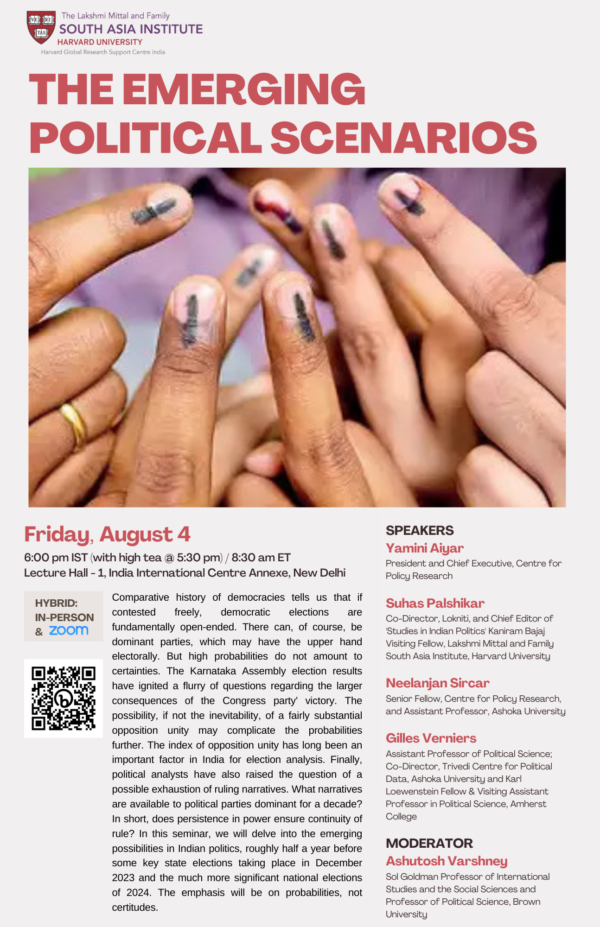HYBRID EVENT
6:00 pm – 7:30 pm IST / 8:30 am – 10:00 am ET
Date: Friday, August 4, 2023
Venue: Lecture Hall – 1, India International Center (Annexe), New Delhi
Comparative history of democracies tells us that if contested freely, democratic elections are fundamentally open-ended. There can, of course, be dominant parties, which may have the upper hand electorally. But high probabilities do not amount to certainties. The Karnataka Assembly election results have ignited a flurry of questions regarding the larger consequences of the Congress party’ victory. The possibility, if not the inevitability, of a fairly substantial opposition unity may complicate the probabilities further. The index of opposition unity has long been an important factor in India for election analysis. Finally, political analysts have also raised the question of a possible exhaustion of ruling narratives. What narratives are available to political parties dominant for a decade? In short, does persistence in power ensure continuity of rule? In this seminar, we will delve into the emerging possibilities in Indian politics, roughly half a year before some key state elections taking place in December 2023 and the much more significant national elections of 2024. The emphasis will be on probabilities, not certitudes.
Moderator:
- Ashutosh Varshney, Sol Goldman Professor of International Studies and the Social Sciences and Professor of Political Science, Brown University
- Yamini Aiyar, President and Chief Executive, Centre for Policy Research
- Suhas Palshikar, Co-Director, Lokniti, and Chief Editor of ‘Studies in Indian Politics’
- Neelanjan Sircar, Senior Fellow, Centre for Policy Research, and Assistant Professor, Ashoka University
- Gilles Verniers, Assistant Professor of Political Science; Co-Director, Trivedi Centre for Political Data, Ashoka University and Karl Loewenstein Fellow & Visiting Assistant Professor in Political Science, Amherst College

